Scientist the world over have gushed enough terrifying data on the perils that accompany human-induced climate change over the last decade to where many across the globe are now numb to it. Rising sea levels? Got it. More frequent and more severe storms? Check. Longer droughts? Understood. Ocean acidification? Uh huh.
Even the latest congressionally mandated climate report produced by the federal government (and quietly released the day after Thanksgiving and disavowed by the current administration) offers up dire data—massive crop losses, economic calamities in the billions of dollars and actual human casualties will be laid at the foot of a warming world before this century is over unless we alter our approach to dealing with climate change and alter it quickly.
Sadly, willful political and on-the-ground inaction on climate change continues. Today, we're on course to leave the coming generations a world in environmental peril, where food production will be a challenge, where oceans won't be dependable sources of fish and where hunger for millions could very well become a reality.
But those are global consequences. What about the trout? What does climate change have in store for them? And for those of us who pursue them? The latest scientific data offers this notion:
The last generation of trout anglers might very well be wandering around in diapers today.
Here's hoping this coming generation of fishers isn't forced to give up the pursuit simply because the trout aren't there to pursue. According to real data from real scientists, the loss could be foisted upon them by the inaction of the generations that preceded them, and stubborn governing bodies in the U.S. and around the world that ignored legitimate, peer-reviewed science as proof that the world was changing and that mankind played a starring role in this unfortunate production.
If we continue on the course we're on today—if we continue to emit carbon at today's rate into the atmosphere for the foreseeable future—nearly half of the suitable habitat for all species of trout will be lost to climate change by the 2080s. That isn't a "doom-and-gloom" scenario meant to frighten us into action. It's data, based on research conducted by a host of scientists for the Proceedings of the National Academy of Sciences.
But wait. That's not all. If we stay the course and continue with our greenhouse gas emissions at today's rate, here's what we can expect to see, when it comes to the decline of the trout we love to chase:
- We will lose 58 percent of our existing cutthroat trout habitat in the West. Keep in mind that native cutthroats are already experiencing drastic habitat loss due to invasive species introduction, water flow changes, development and, yes, a warming climate.
- We'll lose 77 percent of our existing brook trout habitat.
- Our hardy browns? They can withstand anything, right? No. Nearly half of our brown trout habitat will be lost due to warmer temperatures, rainier winters and winter flood frequency.
- We'll lose 35 percent of our rainbow trout habitat.
- Gila trout in New Mexico and Arizona will lose 70 percent of their habitat by 2050 if climate models persist under existing conditions, because the region will see 20-percent reduction in precipitation, according to the 2016 study, "Vulnerability of Gila Trout Streams to Future Wildfires and Temperature Warming," authored by top fisheries biologists in the U.S.
- Here's the big one. Native bull trout stand to lose the most. If we continue on the same climate-change response course we're on now, we stand to lose up to 92 percent of our "thermally suitable" natal bull trout habitat.
There remains a sliver of hope, but only if we act. If we are to protect the country—and the planet—from the worst impacts of a changing climate, the time to act is now. It's time to stand up and realize just what course we're on, and what kind of world we're about to deposit at the feet of our toddlers-turned-trout-anglers.
As the government's new report reads, "Future risks from climate change depend primarily on decisions made today." And the solutions are largely known, starting with a steady, yet rapid, reduction in carbon emissions and a significant investment in climate-resilient infrastructure. The latter likely won't help our trout streams, which are already warming beyond comfort levels for our cold-water loving salmonids. But the former can slow the progression a warming world and perhaps give us time to restore and arm our trout watersheds for what's to come.
And that's where "hope" comes in. More recently released science offers optimism that the work many in the fisheries world are already doing is helping capture carbon and make trout water more impervious to a warming world. Trout Unlimited (full disclosure—I proudly work for TU and have for nearly 15 years), for instance, has been restoring trout waters for decades—only recently have we learned that intact or restored riparian landscapes store carbon at a rate more than triple that of more arid lands.
There is, indeed hope. But that hope lies in action. While some are doing good work to make the planet more resilient to a warming world, others must take on the task of meshing science and politics and put the world on a course correction. In other words, we must do something.
If we don't, our children and grandchildren — and the trout we love — aren't going to like it.
We hate to ask, but ...
Hatch Magazine's independent conservation journalism depends on the support of readers like you. Please consider becoming a Hatch Magazine sustaining member by making a small monthly or one time donation. Your contribution will help fund more of the in-depth coverage you've come to trust.

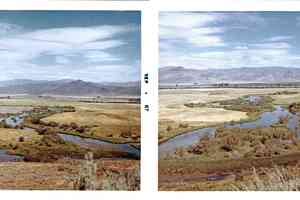






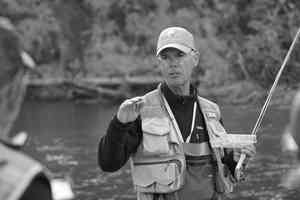
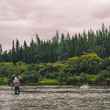

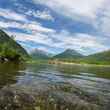
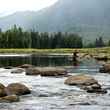

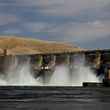


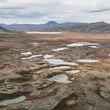
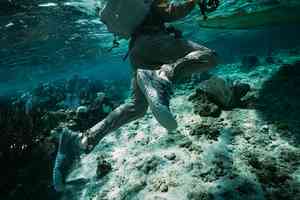
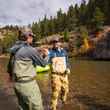
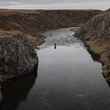


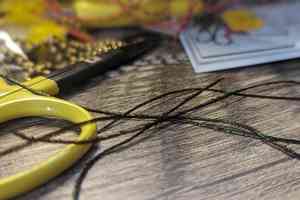
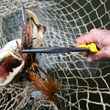




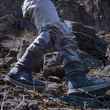
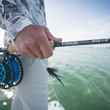

Comments
Marshall Cutchin replied on Permalink
This is an important piece. Thanks Chris Hunt. While Chris says, "The last generation of trout anglers might very well be wandering around in diapers today," I would say that "The last generation of trout anglers might be wandering around in their F-150s today." This is not some distant tragedy that we have to avoid. This is happening today. And to keep it simple, if you are not giving back more than you are taking, you're complicit in the result. Let's stop pretending that by sending off our annual membership fees to our favorite hunting and fishing conservation groups that we are personally making a meaningful difference. Conservation groups matter, but only when they are addressing key issues head-on and with unrelenting passion and focus. The biggest impact we can have is by ensuring that democracy survives, by electing politicians who believe the public interest comes before private interest, and by individually and collectively participating in bringing an end to ALL CO2 and water pollution.
Big Country replied on Permalink
So I agree with protecting the wild trout and cold clean water! What I can’t stand is hypocrisy. Everyone wants change but everyone gets in a jet and flies to Patagonia or out west. I have no qualms with hearing about issues but I do take issue with the hypocrisy. As I told Trout Unlimited, how many trout in Washington. You tell me that we need to conserve and protect the resources but all of us fly all over to fish. If we really cared about the Trout and not our fiduciary responsibilities we would stop traveling and just fish local. The effects of global warming are not a debate I want to start. However if we want to protect the fish and not the money we would stop traveling in jets and SUV’s to pursue them.
Erik replied on Permalink
I agree. I hunt and fish locally and think it’s all I need. i have also wondered during my wilderness sojourns if my boys would be able to find wild cutts where I’ve found them. Doubtful, perhaps.
Frank DeCarlo replied on Permalink
global warming is a reality that is inevitable. thinking that our puny lives matter in the totality of this planet and the ebbs and flows of our climate is stupid. catch fish while you can if you can. don't pollute. be a decent citizen. don't beat yourself up because you are a human and do human things. the earth will go on and there will be issues. that is life. don't ruin yours by listening to assholes with agendas that are ludicrous at best and dangerous at worst.
Hopeful replied on Permalink
Perhaps things are not as grim as they seem. The US Climate Special Report cited in your article uses temperature projections twice as high as the UN IPCC reports, derived from studies funded by left leaning activists. Imagine if the study came out and said, "no problem" and just used studies funded by Exxon. Surely, the truth is somewhere in between.
The vast majority (over 90%) of the published climate models are predicting more warming than has been measured. Sure, we're warming, certainly, we influence it, but don't give all the doomsday scenarios more credit than they deserve.
Also, study the actual data. Look at figure 6.3 of the US Climate Science Special Report. While average temperatures have risen, the hottest days of the year, the ones which really kill the trout, have actually been a bit lower than long term average throughout most of the US.
We may yet survive.
Matt replied on Permalink
And your point is...? We should not strive to reduce our impact or at least continue to contribute to causes that protect what many of us enjoy? Say the model is 50% off and the date for habitat loss pushes to 2110? Is that better?
Karla replied on Permalink
Actually, I don't really know how you arrive at all those percentages. It seems we are bent on reaching 100% extinction for most of life on Earth.
The critical years to have diverted from this path are a decade or better behind us.
jayme miller replied on Permalink
The biggest threat to trout that tree huggers winter admit is the draining of our watersheds designed in the early 1900s to irrigate crops to burn in our fuel tanks and feed the world. Corporate subsidized farming is the biggest environmental threat to America.
Howard Hawkins replied on Permalink
I agree the environment is in trouble but when are going to address the real problem. We are doing a lot in the country to help but till we put the pressure on Asia we are not going to see any improvement. Water bottles are a huge impact. Do you recycle. If is to be it has to start with me.
K replied on Permalink
You’d be far better off working on local projects to restore and enhance your local waters than spending much time on this.
China is building new coal fired electric generating plants today at a rate that will overcome pretty much every feasible Carbon reduction measure the rest of the world could take.
Take a look at M Shellenberger’s new book Apocalypse Never, or some of the work that B Lomborg has done to get some perspective. It will produce much better sense of how you should invest your time and effort.
Pages